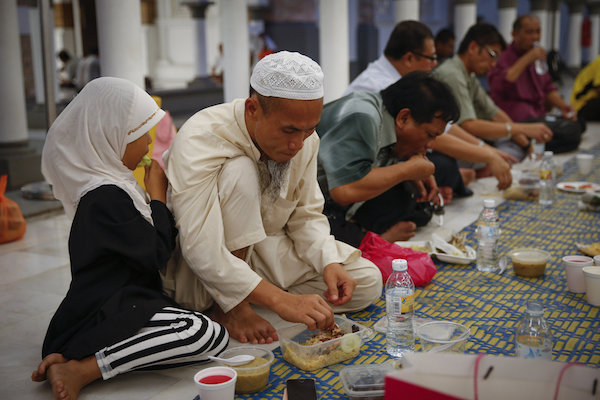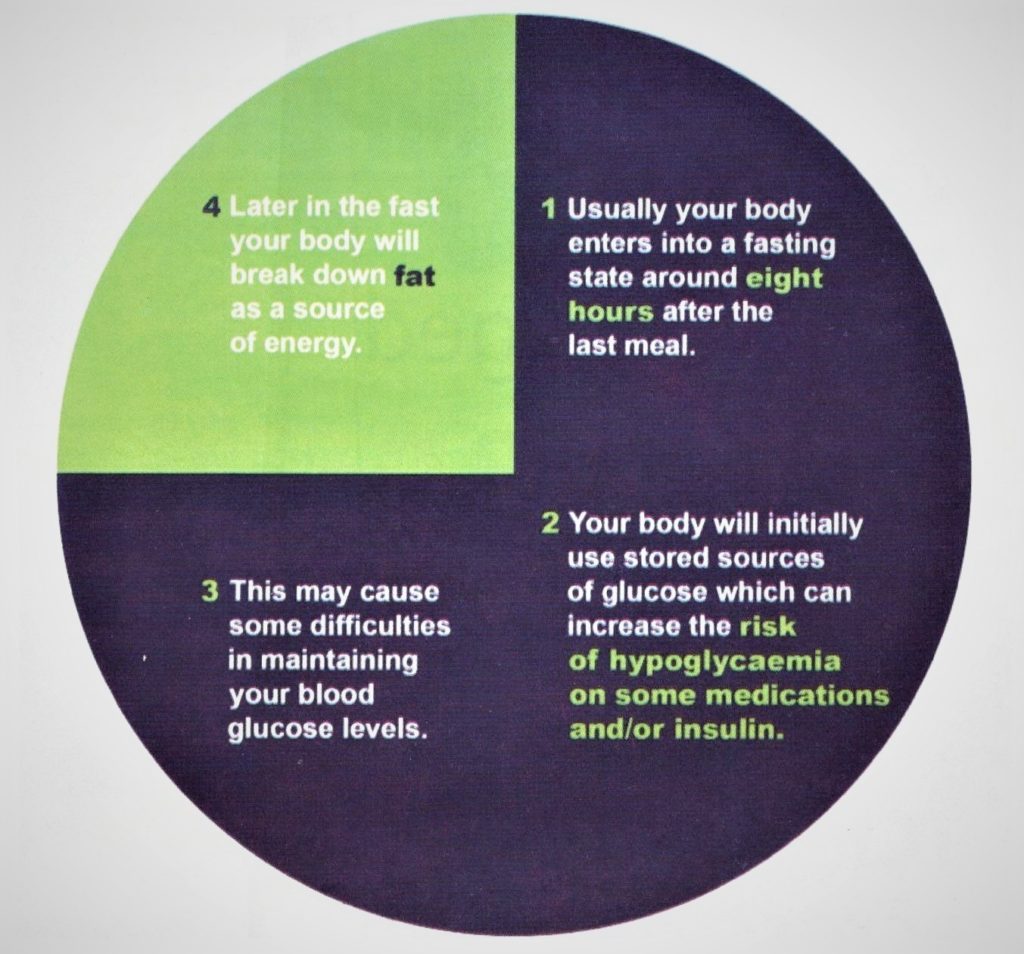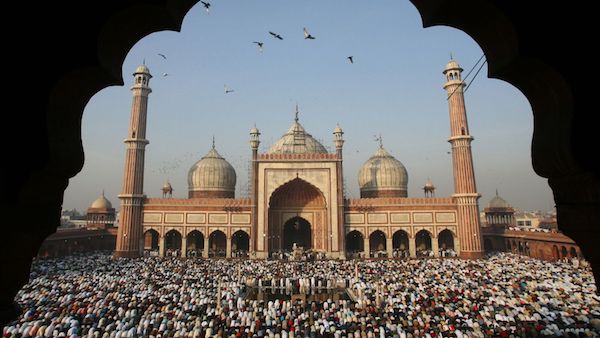- Ramadan (Sawm) is one of the five pillars of Islam.
- This year it will start on 6th of May, it varies according to the lunar calendar.
- In this year it’s in Summer, which means longer hours without food.
- Most people take two meals in the day.
- Sehri (meal before dawn)
- Iftaar (meal after sunset).
The Month of Ramadan in which the Quran was revealed, a guidance for mankind and clear proofs for the guidance and criterion between right and wrong. (Surah Baqarah: Ayah 185)
Who is Exempt?
There are certain groups of people and circumstances where you may be exempt from fasting. For example:
- children (under the age of puberty)
- elderly
- the sick
- those with learning difficulties
- those who are travelling
- pregnant, breastfeeding and
- menstruating women.
However, should anyone be sick or on a journey, then (he should fast) a number of other days (equal to the missed ones); And as for those who fast (with difficulty) they have a choice either to fast or to feed a poor person for every day. (Surah Baqarah: Ayah 184)
What is Diabetes?
- Diabetes is a health condition where the amount of glucose in your blood gets too high.
- This happens if your pancreas doesn’t make any insulin or enough insulin to help the glucose enter your body’s cells. or the insulin doesn’t work properly.
- Insulin is the hormone produced by the pancreas that allows glucose to enter the body’s cells, where it is used as fuel for energy so we can normally live our lives.
- Glucose come from digesting carbohydrate and is also produced by the liver.
- If you have diabetes, your body cannot make proper use of this fuel and it builds up in the blood which can be dangerous.
2 TYPES
TYPE 1
- The body is unable to produce the hormone insulin, which we need to break down the glucose (energy) in what we eat or drink.
- unrelated to lifestyle factors and is not preventable.
- Usually diagnosed when you are a child or young adult.
- 10% of people with diabetes.
TYPE 2
- Develops when the body cannot make enough insulin, or when the insulin produced does not work properly.
- linked to lifestyle and can be preventable.
- Starts gradually, usually later in life, and because the symptoms may not be so obvious it might be years before it is diagnosed.
- 90% of people with diabetes.

- Why take Care of Diabetes?
- It is very important to have good blood glucose control if you have been diagnosed with diabetes.
- If your blood glucose levels are too high for too long, you can get extremely ill.
- Good glucose control helps reduce risk of developing future complications such as:
– Blindness
– Heart disease
– Stroke
– nerve damage
– Kidney disease
What Diabetic patients needs to care about during fasting?
1, Hypoglycaemia (when glucose levels are too low)
Shaking, sweating
blurred vision
tingling of the lip’s
irritability/ anxiety
Fast pulse/ palpitations.
Not all people with diabetes will be at risk of hypos only those with insulin or using certain medication.
2, Hyperglycaemia (When glucose levels are too high)
- Thirst
- Going to the toilet more often
- Headaches
- Extreme tiredness
- Ketones-pear drop smell on breath (mainly for people with Type 1 and occasionally for people with Type 2).
3, Dehydration
- Feel more thirsty
- Not going to the toilet as often
- Dry mouth, lips and skin.
Remember testing your blood glucose levels doesn’t break your fast so if you have the facility to test your blood glucose levels regularly please. ‘do so.

What should we do?
- Visit your doctor two months prior to Ramadan.
- If you are advised by your doctor to not fast, then take that advice.
- If you are unable to fast, speak to your local Imam.
- It may be a good idea to do a couple of days in the month before Ramadan (Shabaan) to see if you are capable of completing it without any complications.
- In certain areas there are education programmes available to help you manage your diabetes during Ramadan.
I never saw the Messenger of Allah (saws) fast for an entire month except in Ramadan and I never saw him fast more than he did in Shabaan. (Bukhari and Muslim)
What and how should we eat?
- Healthy ways to open your fast would be slow-releasing food such as porridge, chapatti, lentils, beans, basmati rice or a handful of nuts.
- Foods’s high in saturated fats should be avoided i.e., ghee, samosas and pakoras.
- Healthy ways to break the fast include a handful of dates and some water.
Take-Home Messages
- Testing your blood glucose levels is important and it does not break the fast. If you have a blood testing meter, test your glucose levels regularly.
- Talk to your doctor or diabetes team before fasting.
- Look for signs of hyperglycaemia, hypoglycaemia and dehydration.
- Make sure someone you know is aware that you are fasting.
- Always carry your glucose tablets, glucose gel or a sugary drink in case of a hypo. This may need to be followed up with a snack like a piece of fruit, biscuit or half a sandwich.
- Finally, if you are ill it is important that you break your fast.
Actions are according to intentions, and a person will get the reward according to his intention. (Bukhari)




